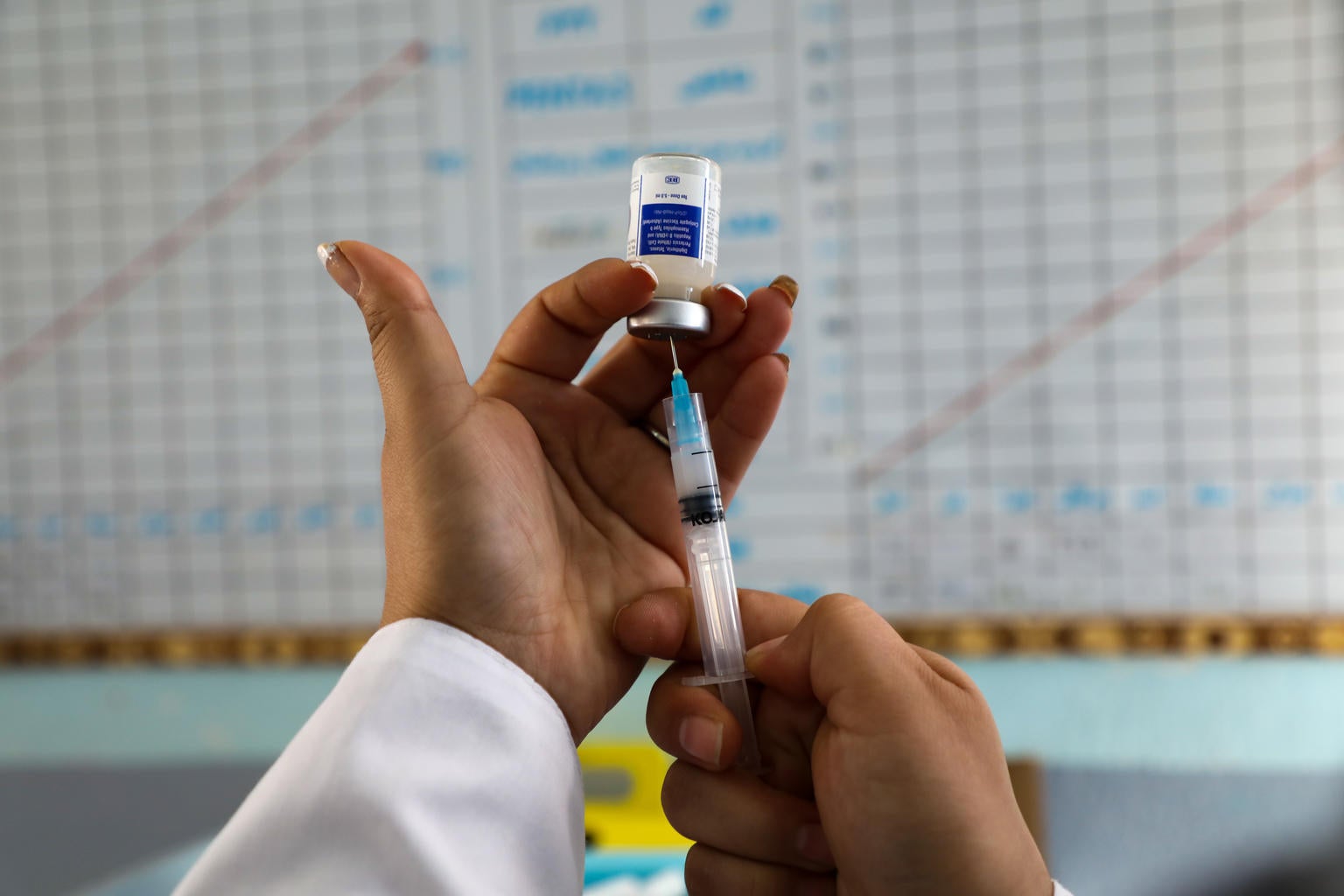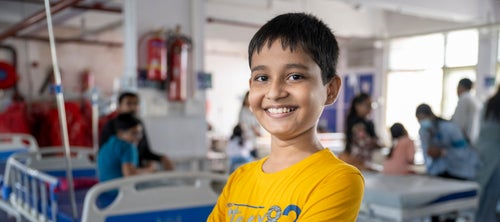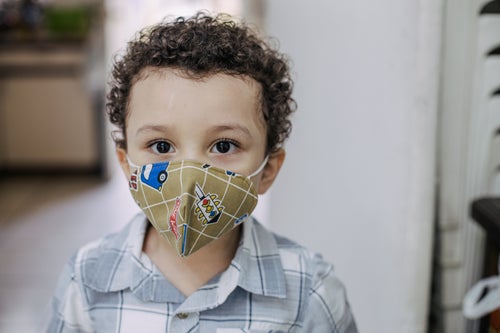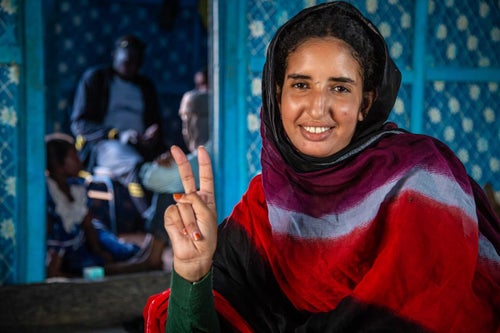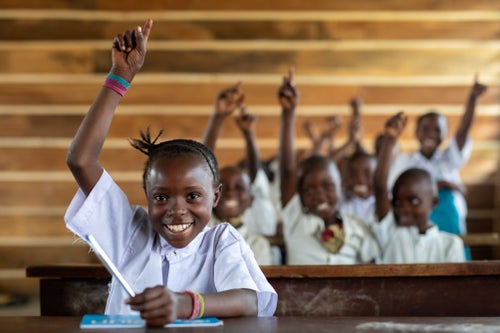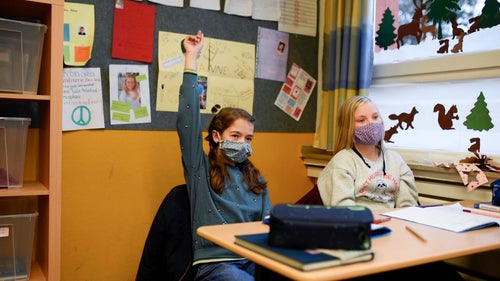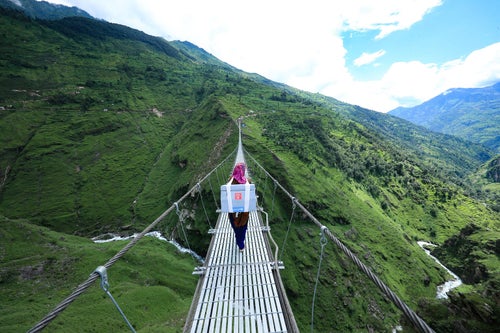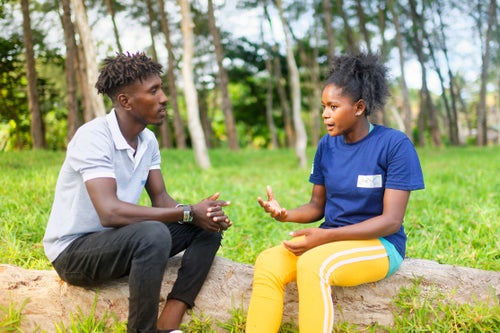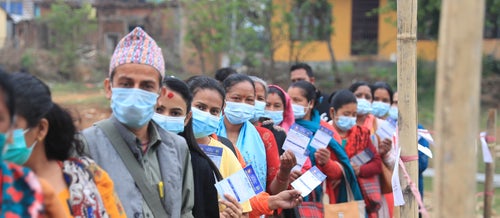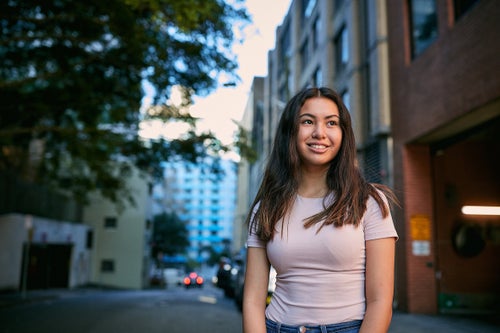Experts around the world are working hard to develop and distribute safe and effective vaccines to protect against COVID-19.
As part of the Global COVAX Facility, UNICEF will lead the purchasing and delivery of vaccines to some of the world’s most vulnerable and remote countries.
We are working to ensure that more than 180 countries will have equitable access to two billion doses of a coronavirus vaccine by the end of 2021. Our work protecting vulnerable children and families around the world does will not stop during a pandemic.
Below are answers to some of the most common questions you might have about a potential COVID-19 vaccine (or vaccines), and how UNICEF is helping.
When will a COVID-19 vaccine be ready?
The COVID-19 vaccine development process has been sped up due to the huge amount of funding and resources dedicated towards it. But before a vaccine is distributed, it must undergo strict regulatory approvals by the World Health Organisation (WHO) and each country to ensure it is safe and effective.
On 31 December 2020, WHO listed the Pfizer/BioNTech vaccine for emergency use, making it the first to receive emergency validation from WHO since the outbreak began a year earlier.
Earlier in December, the UK was the first country in the world to approve the Pfizer/BioNTech coronavirus vaccine, paving the way for mass vaccination of high-risk groups, such as health care workers. Approved by Britain’s medicines regulator, the MHRA, the vaccine offers up to 95 per cent protection against COVID-19.
COVID-19 vaccines need to be approved in each country it will be rolled out in, and once approved it’s critical that the vaccine is made accessible to those that need it most.
The current goal is to make two billion doses of the vaccine available by the end of 2021 and distribute them globally. That’s where UNICEF and its partners come in.
You might have heard of the COVAX Facility which has been set up specifically to ensure equitable access to a successful vaccine. It is the only global effort of its kind and the only chance that many low-income and hard to reach countries have of getting these vaccines.
COVAX is led by Gavi, the Vaccine Alliance, WHO and CEPI – with UNICEF working closely with manufacturers and partners on the purchasing of COVID-19 vaccine doses, as well as shipping, logistics and storage.
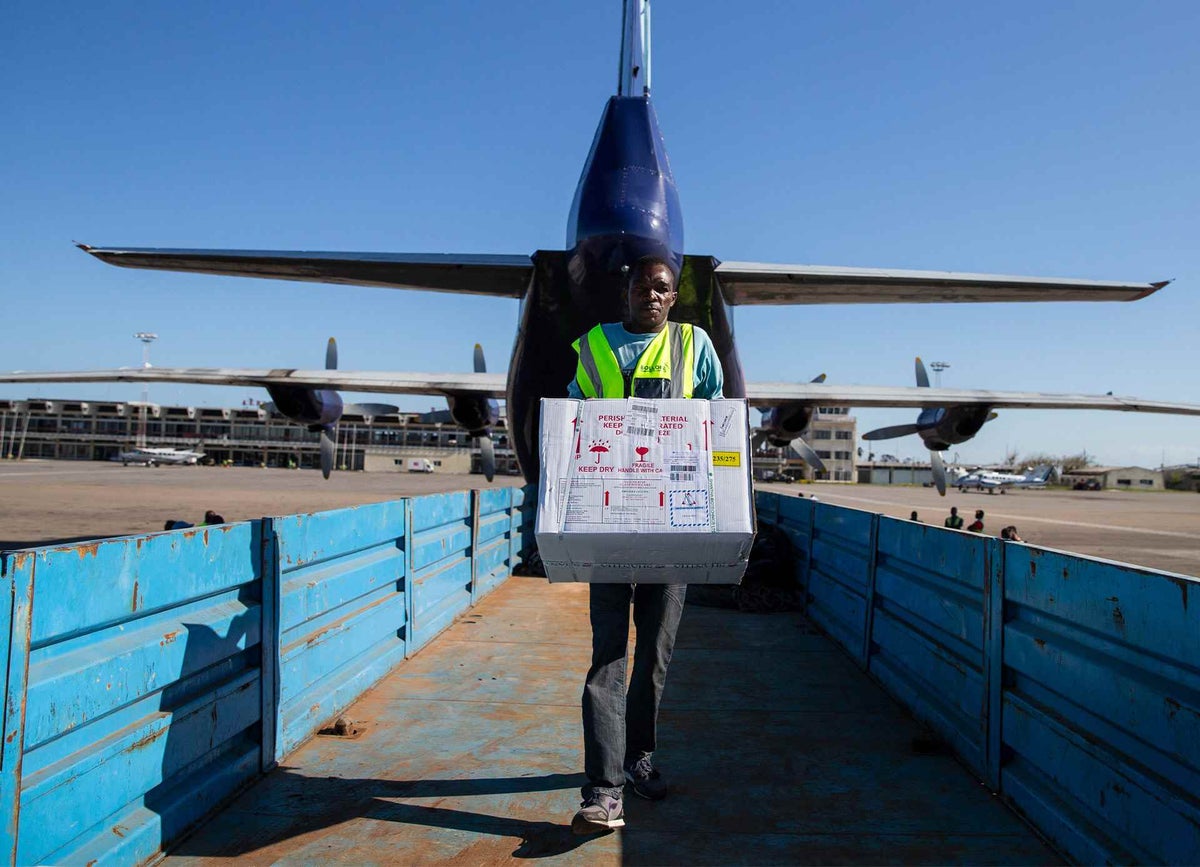
This will be the world's largest and fastest procurement and supply of vaccines in human history.
UNICEF has started negotiations with 350 airlines, freight operators and shipping lines to ensure that we can deliver this precious cargo to over 92 countries as soon as the vaccines become available.
It’s all hands on deck as we get ready to deliver not only COVID-19 vaccine doses, but also syringes, cold chain equipment such as vaccine fridges and carriers, and personal protective equipment to protect frontline workers around the globe.
Why UNICEF?
UNICEF is the world’s largest children’s charity and works to protect the rights of every child in more than 190 countries. As the largest single vaccine buyer in the world, UNICEF has 75 years of experience of protecting and reaching the world’s most vulnerable communities.
Each year, UNICEF purchases and delivers more than two billion doses of vaccines around the world to some of the hardest to reach communities ensuring that children and mothers are protected against deadly diseases.
We are the main purchasing partner of Gavi, the Vaccine Alliance and have helped reach more than 760 million children with life-saving vaccines over the last 20 years, preventing more than 13 million deaths.
""UNICEF vaccinates half the world’s children.""
COVID-19 is already having a significant impact on children’s health. It has disrupted education, restricted health care access, and affected children and young people’s physical and mental wellbeing. Health centres are being overwhelmed and there are supply and equipment shortages.
Until a vaccine is found, the future of a generation of children is at risk.
Who will have access to the coronavirus vaccine?
When a safe and effective vaccine is approved by the WHO, UNICEF will begin the operation to transport vaccines from manufacturers to countries. The initial two billion doses are intended to protect frontline health care and social workers, as well as high-risk and vulnerable people.
The first 18 countries to receive doses of the Pfizer/Biontech vaccines under the COVAX Facility include: Bhutan, Bolivia, Bosnia and Herzegovina, Cabo Verde, Colombia, El Salvador, Georgia, Maldives, Moldova, Mongolia, Peru, Philippines, Republic of Korea, Rwanda, South Africa, Tunisia, Ukraine and the West Bank and Gaza.
We cannot let one disease lead to outbreaks of other diseases that could reverse years of progress in child health.
In vaccinating health workers globally, we help them stay at work so that children and their families can access vital health care. Routine vaccinations, treatment of malnutrition and other deadly diseases, as well as care for mothers and newborns, cannot stop during a pandemic.
Will children receive the COVID-19 vaccine?
Children are unlikely to receive the COVID-19 vaccine in the initial stages, as frontline workers and high-risk groups will be prioritised. But we know that protecting health care and social workers is an essential step in keeping children protected. It will not only reduce the spread of the disease and promote faster recovery from the pandemic, but it will also enable children to continue to access essential health and social services.
UNICEF continues to support routine vaccination campaigns around the world, protecting children against deadly diseases such as polio and measles.
>> Read the lengths to which health workers go to reach every child with vaccines
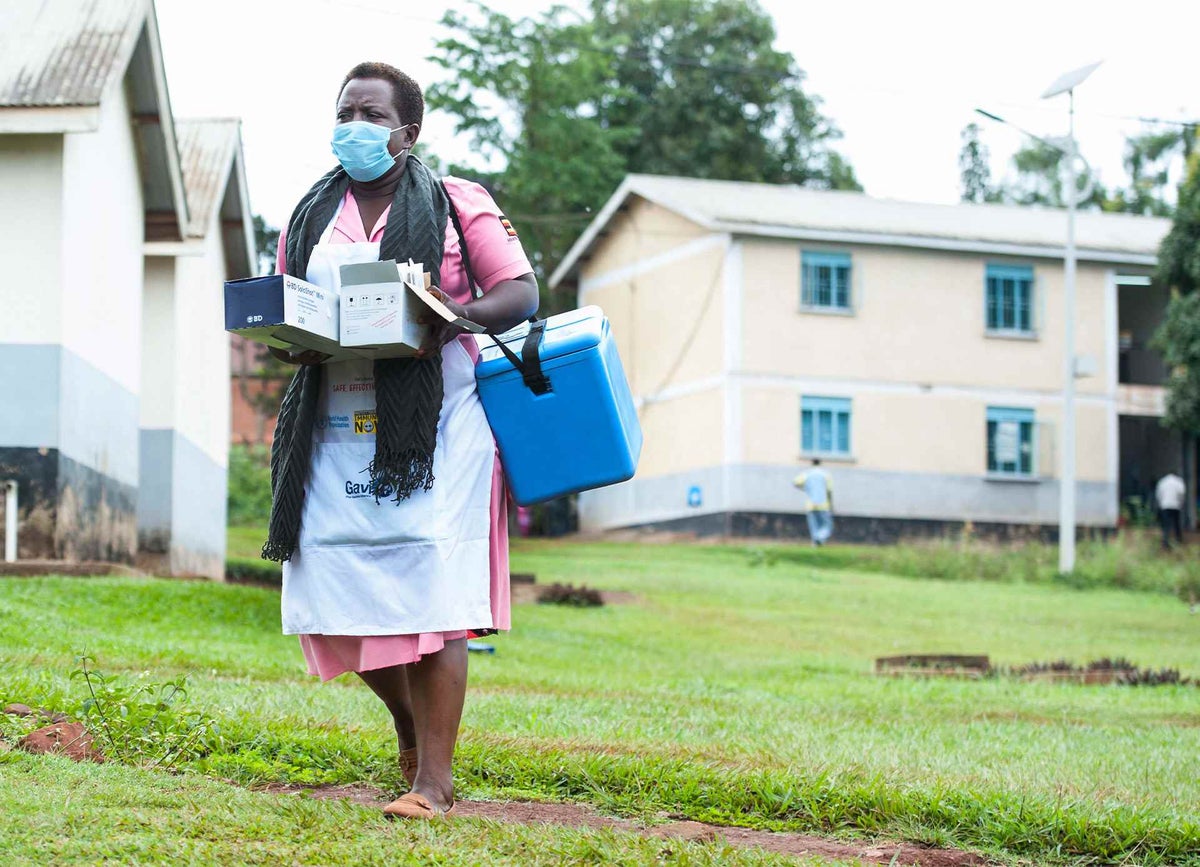
Will a coronavirus vaccine be safe?
Safety is the priority in the approval of a COVID-19 vaccine. A successful vaccine will go through approval processes by each country and the WHO. Vaccines approved by the WHO have gone through rigorous tests and clinical trials to show that they are safe and effective and each country has a regulatory process that ensures vaccine safety.
UNICEF makes the safety of children and their families its highest priority – that includes the delivery of a vaccine that is safe.
We know that vaccines work thanks to years of scientific research. Since vaccines were invented, the number of babies, children and adults who get sick or die from vaccine preventable illness has significantly reduced.
How is UNICEF Australia supporting vulnerable communities overseas to access the vaccine?
The threat to children posed by COVID-19 is enormous, but even more so in poverty stricken and war-torn countries. UNICEF is working closely with countries around the world, including our neighbours in the Asia-Pacific region, to prepare for the introduction of a successful vaccine.
Our work to support countries in vaccine delivery over the coming months includes:
- Strengthening the cold chain to keep vaccines safe and effective during transportation
- Training health workers and providing PPE
- Monitoring the delivery and distribution of vaccines
- Educating communities about the importance of vaccines
When will a COVID-19 vaccine be available in Australia?
A potential vaccine is currently expected to be available from mid-to-late February and will be managed by the federal and state governments in Australia. The first vaccine to be rolled out will be from Pfizer-BioNTech, which was approved by the Therapeutic Goods Administration at the end of January.
Before any vaccine is approved for use in Australia, it must pass the Therapeutic Goods Administration’s rigorous assessment and approval processes to ensure it is safe and effective. This same process is being applied for all COVID-19 vaccines before they are introduced. As in other countries, frontline workers and vulnerable people will be prioritised to receive the vaccine first.
Ensuring that a COVID-19 vaccine reaches everyone, no matter where they live is not only the right thing to do, it is also in Australia’s best economic and health security interests.
For more information about Australia’s plan for a COVID-19 vaccine visit the Australian Government Department of Health.
For the latest information on coronavirus and COVID-19 vaccines visit the WHO.
This article was last updated on 10 February 2021 and will continued to be updated to reflect the latest information.
Related articles
Stay up-to-date on UNICEF's work in Australia and around the world



